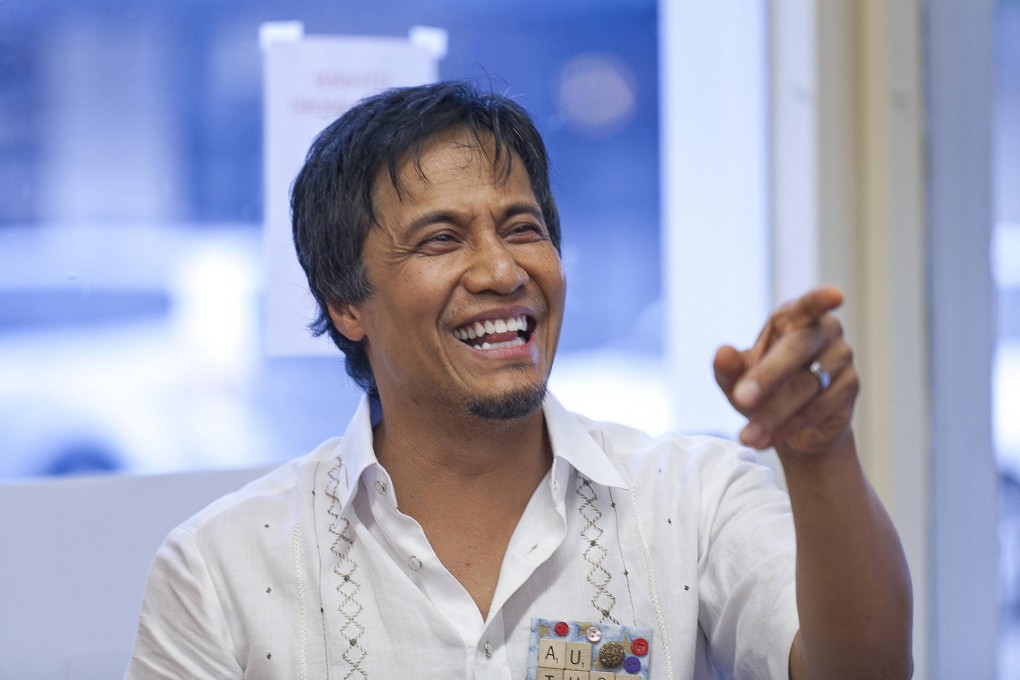Back In The News: Alex Tizon
My Family’s Slave, the American-Filipino author’s confessional account of modern-day slavery, is the cover story of the June 2017 issue of Atlantic magazine. The journalist, who died in March 2017, spoke to Post Magazine in 2014

It wasn't a conscious decision to search for my Asian self; it was an urgency born out of an emptiness I was trying to fill. I grew up not knowing how to be and I became aware of this when I was in my 30s or 40s. The way I've defined it in my book ( Big Little Man) is that I was trying to figure out how to be a man. But more than that, I was trying to figure out how to be an Asian man in the West. I grew up with the embedded notion that if you were Asian and a man, you were low on the hierarchy of men. My family went to the United States in the middle of the Vietnam war. I was four years old. The primary images of Asians that looked like me on television were of the enemy. I looked a lot like the Vietcong that American soldiers were fighting. That was something that stayed with me. I had the face of the enemy.
After college I began looking for evidence of my own worthiness as a man of Asian descent. I used to run into the word "oriental" a lot. So anything I read in magazines or newspapers that had the word "oriental" I would clip out. I collected a mountain of information. I had a folder on television characters - Hop Sing of Bonanza; Bruce Lee, of course; and there was a TV series called Kung Fu in which the main character was supposed to be Chinese but was played by David Carradine. At the time, I didn't know why I was collecting that information. But now I see: I was trying to build a case to prove my own worth. I was also a great reader of colonial history. I don't think we can underestimate the impact of 3½ centuries of colonialism on the collective psyche of the people where I come from. I think I still carry the vestiges of colonialism in my own brain. There were certain categories of knowledge that my parents never questioned and passed on to me. And although I'm making every effort to be more aware of whether those categories are valid are not, I'm probably passing some of that stuff on to my own children.
I first visited the Philippines when I was 29. I thought I would feel at home there, but I felt more out of place than I did in the US. I discovered I was more American than Filipino. It was shattering because I never felt quite at home in the US, either. I had to reconcile myself to the fact that I'm going to be one of those people who doesn't feel at home anywhere.
What I have to remember about the Philippines is that there was no Philippines before the Spaniards came. It was a conglomeration of hundreds of little fiefdoms spread out over 7,000 islands open to different influences. There was no cohesive, singular culture. The Spaniards and the Americans tried to make the Philippines one nation. But it never has been one nation. And so in the US there's no singular Filipino culture that has crossed the ocean. You have Italian food, Mexican food, Indian food, but there's no such thing as Filipino food. I don't know why. The Philippines doesn't have the strong, centuries-long tradition of entrepreneurship, like India, China, Korea and Japan.
I became a journalist (for The Seattle Times) accidentally. I didn't go into journalism thinking it would solidify my identity. I did it because I needed to make a living and I was proficient in writing. But in becoming a journalist I learned about other people who felt like they were on the edges of American mainstream life. I became acquainted with people from all over the globe - native American tribes; immigrants from Africa; Vietnamese and Cambodian boatpeople. Telling their stories to a mass audience gave me a purpose in life, an identity I didn't have before. As someone who always felt sort of invisible in America, I became a storyteller of invisible people. The fact that I had to struggle with my Asian self wasn't a life-and-death question anymore.
I was 24 when I met my first wife (of European descent). The marriage failed because of me. I wasn't suited to be a husband at the time. I was completely undeveloped, not just as a man but as a person. My identity was very much in flux - and I fluxed right out of the marriage. I didn't realise it at the time, but I was very Filipino in the way I viewed women. That unfortunate woman who fell in love with me was ready to be married; she was solid in her identity. We both underestimated the influences of our cultures and our psyches.